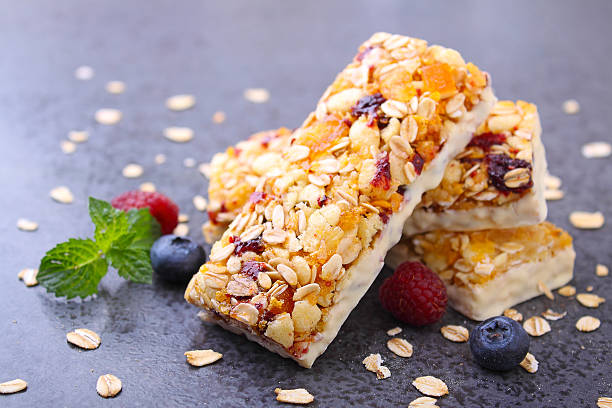Every once in a while, I’d grab a couple of nutrition bars when I’m in a rush to go to work, or if I’m suddenly hungry in the middle of the day. As someone who’s always made health and fitness a priority, I’ve been asked by friends and colleagues if these bars are beneficial to one’s health or if they can help them achieve their weight loss goals.
So here’s the thing – while I would prefer not to replace my meals with nutrition bars, I’d very much recommend it instead of eating burgers and fries.
Are All Nutrition Bars the Same?
Definitely not. It’s the trend nowadays and if you go to health food stores you’ll notice that there’s always a new nutrition bar on the shelves promising to be more nutritious and better tasting than the others! Here are the ingredients that you should look for in a good nutrition bar:
- Protein: A good nutrition bar should contain a minimum of 15 grams of protein if you’re looking to consume these bars to replace your meals. Preferably, the protein should come from whey or casein but not collagen protein or soy. Soy has been found to affect thyroid hormones as well as cause an imbalance of female and male hormones.
- Fiber: A few brands of nutrition bars have between 4-6 grams of fiber. If your nutrition bar of choice has less than this, be sure make up for it by eating some fruits or salads.
- Calories: As a meal replacement, your nutrition bar should have 250-300 calories in it if you want to have enough fuel to last you til your next meal.
- Fat: Nutrition bars should be fairly low in fat. Experts recommend choosing one that contains 3 grams or less of saturated fat and 0 trans fat. Don’t go for those that have cholesterol-boosting oils and instead choose one that uses polyunsaturated vegetable oils.
- Carbohydrate: There needs to be a balance of carbohydrate/fat/protein ratio. If you prefer more protein then the fat and carb level should be lower. Some bars however have lots of sugar. Choose one that contains less than 15grams.
- Vitamins: Your nutrition bar should contain at least 30% of the minimum vitamin daily requirements for crucial vitamins like A, C, D and E.
- Minerals: Just like vitamins, it should have 30% of the minimum daily requirement especially for essential minerals like magnesium, potassium calcium and zinc.
Drawbacks of Nutrition Bars
Here are some potential disadvantages to nutrition bars:
1. It can be costly. The really good quality nutrition bars can cost as much as $3 each so if you eat 1-2 a day, it can get really expensive. However, as far as being a meal replacement it’s certainly cheaper than a burger or eating in restaurants.
2. You could be getting more nutrition than you need. This is especially true if you’re eating nutrition bars as snack as your meals can already provide you with the nutrition your body needs. Excess vitamin A may cause liver problems, while excess vitamin E may cause excessive bleeding.
3. Some bars have herbal ingredients. Stay away from nutrition bars that use “energy boosting” herbs like bitter orange, ephedra or caffeine from tea extracts which can cause blood pressure problems.
4. Not all nutrition bars are delicious. Some taste bad, but there are also others that are delicious. You may have to try a few different ones to find one you like.
If you’re working out in a gym like LA Fitness and you need something to fuel up your workout then nutrition bars are definitely a must.
Make your own healthy protein bars using this recipe:
